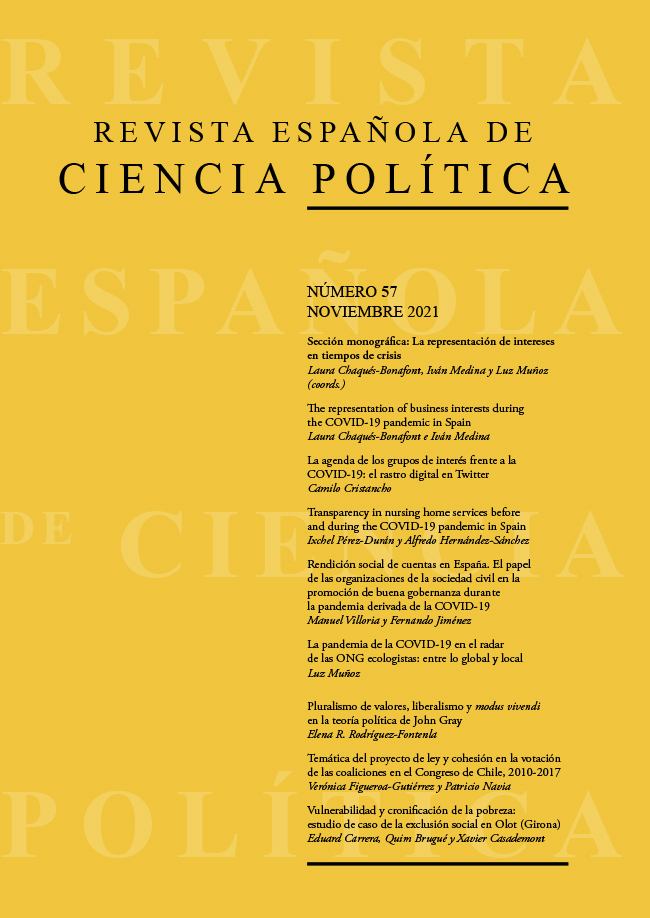Interest groups’ agenda in the face of COVID-19: Digital trail on Twitter
DOI:
https://doi.org/10.21308/recp.57.02Keywords:
interest groups, agenda, COVID-19, social media, Twitter, automatic text analysis, computational social scienceAbstract
Interest groups are playing a fundamental role in solving the problems generated by the COVID-19 pandemic, as they address multiple issues and represent social groups around an unprecedented social challenge. Multiple organizations express their constituents’concerns and demands every day, thus forging an agenda in which they debate how to deal with the multiple effects of the pandemic in various sectors. However, given the dynamics of attention inherent to the emergency situation and the diversity of issues, it is difficult to follow the diversity and complexity of multiple actors and issues. This article describes the agenda of interest groups in Spain, based on the publications on Twitter by the 140 most active organizations between March 2018 and March 2021. Using automated text classification, it is possible to conclude that the aggregate attention by types of interest groups to the main items on the agenda vary little after the outbreak of the crisis caused by the pandemic. Attention to the health, socio-political and economic dimensions related to COVID-19 follows similar patterns among the different types of groups and is transversal to the issues on the agenda. These results show that interest groups continue to carry out their interest representation function without significantly altering their behaviour in response to the crisis.
Downloads
Downloads
- pdf (Español (España))
- html (Español (España))
- xml (Español (España))
- Gráfico 1 (Español (España))
- Gráfico 2 (Español (España))
- Gráfico 3 (Español (España))
- Gráfico 4 (Español (España))
- Gráfico 5 (Español (España))
- Gráfico 6 (Español (España))
- Gráfico A1 (Español (España))
- Tabla A1.1 (Español (España))
- Tabla A1.2 (Español (España))
- Tabla A1.3 (Español (España))
- Tabla A2.1 (Español (España))
- Tabla A3.1 (Español (España))
- Tabla A3.2 (Español (España))
- Tabla A3.2-cont. (Español (España))
Published
How to Cite
Issue
Section
License
Copyright (c) 2021 Camilo Cristancho

This work is licensed under a Creative Commons Attribution-NonCommercial-NoDerivatives 4.0 International License.






